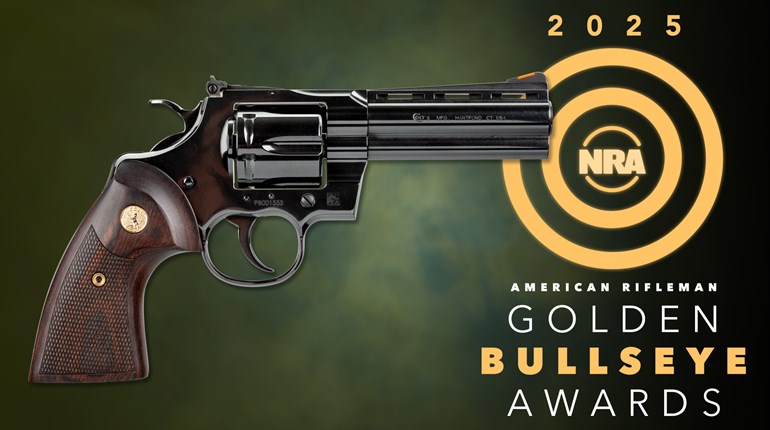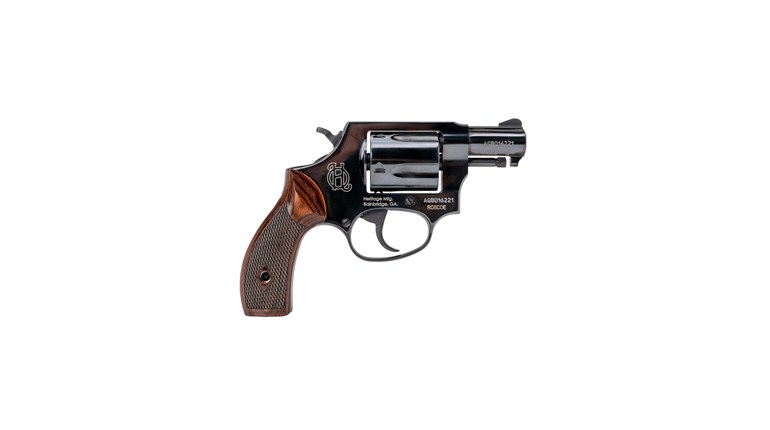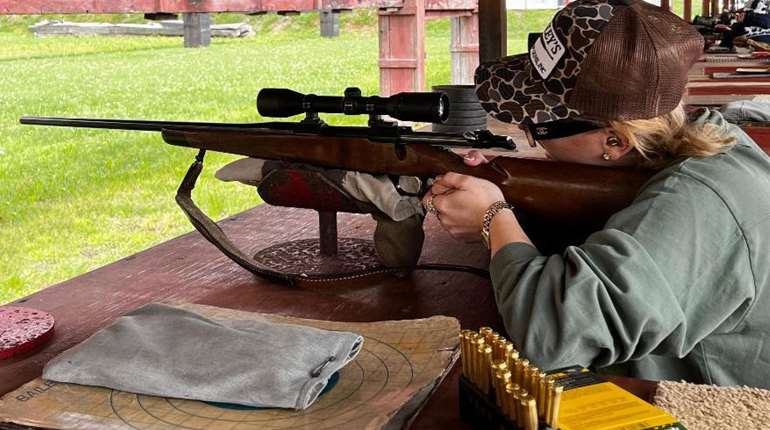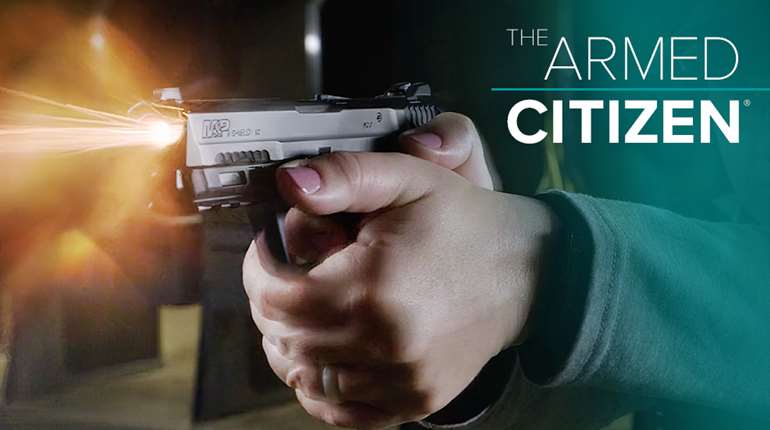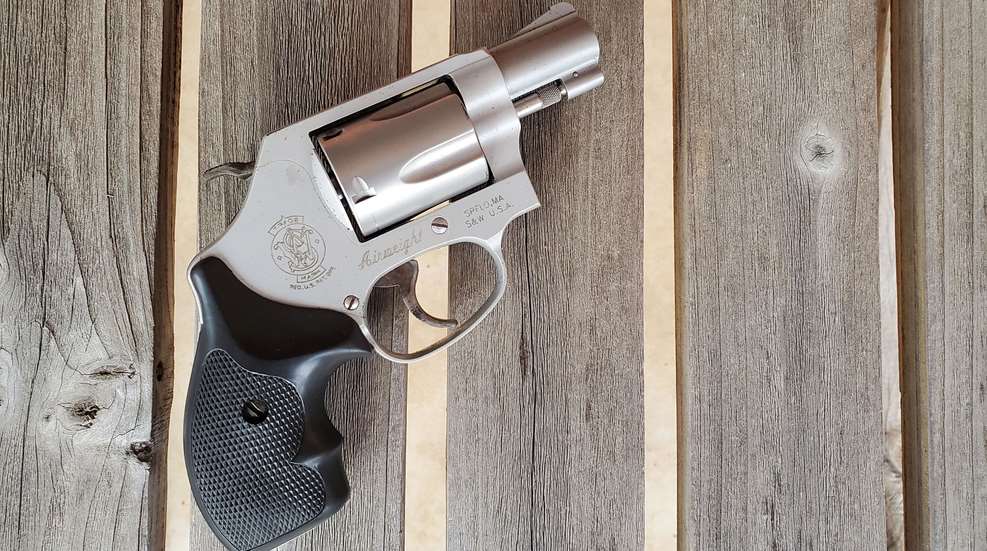
Gun-buying advice is subject to trends, just like anything else. For years, from as far back as I can remember (the ’80s) until the early 2000s, you could ask any gun owner or gun salesman “What’s the best handgun for a woman?” and you’d be almost guaranteed to get the same answer: “A .38 snubbie.” A snub-nose (short-barreled), lightweight revolver chambered in .38 Special was touted as a perfect women’s gun because it was small, light and super simple to operate. Practically everyone accepted this as fact.
And then, a backlash began to rise up against this advice. Blogs and magazine articles everywhere started screaming “Stop telling women to buy a .38 special!” Everyone but the most old-school gun-counter jockeys labeled that advice condescending, patronizing and simplistic—which it most definitely was. Although few people had actually said, “Revolvers are so simple, even a woman can use them,” that was the implied meaning.
We all started pointing out how these guns were so small and lightweight that they were painful to shoot and difficult to hit anything with, and we pointed out the obvious truth that of course women were perfectly capable of figuring out how to run semi-auto handguns. It got to the point where if you recommended a woman buy a .38 Special, you were glared at as a probable chauvinist pig.
As often happens in life, the pendulum had swung too far in the opposite direction. The truth about the .38 Special is somewhere in the middle.
The Benefits of Revolvers
Revolvers in general have three main benefits over semi-automatics: They are a bit simpler and more intuitive to operate, they are less susceptible to (but definitely not immune to) malfunctions and jams, and they don’t require the user to rack a slide. The first two are big benefits when we’re talking about new shooters (not just women), and the third can be a big deal to anyone who might struggle with arthritis or other hand issues that make racking a slide difficult. For that reason alone, shooters—experienced and unexperienced alike—who have certain hand problems would do well to consider a revolver.
There’s no denying that a small amount of regular practice with a semi-auto will overcome the “simple and less prone to jam” factors, so we really can’t use those two benefits to argue for revolvers. Can we?
Who Should Consider a .38 Special
There’s one particular type of gun buyer who needs the simple, less-likely-to-jam-with-imperfect-use function of a revolver over a semi-automatic. Look, no one likes to talk about this, but it’s reality: We all know someone who isn’t crazy about guns but feels she needs to have one for self-protection. This buyer is going to buy a gun, shoot it once, probably be a little scared of it or indifferent to it, stick it in a nightstand and not pull it out again for five or 10 years. This kind of buyer should consider a revolver.
Let me be crystal clear: We do not want you to do this. If you’re going to own firearms, it is in your best interest to get some instruction, gain confidence and proficiency with your gun, and shoot it regularly to maintain that proficiency. But the reality is that not everyone is going to do that, and you can’t force them, and we still support their right to exercise their Second Amendment freedoms. If your friend or sister or grandma wants a gun but you know she’s not going to stick with it or follow through with regular range trips, keep encouraging her to go practice. Offer to take her to the range for a fun afternoon together. Meanwhile, consider guiding her toward a revolver rather than a semi-auto until you can convince her that regular practice is a good idea.
I know, I know. In this article I practically came right out and said that a lightweight, short-barreled revolver is a bad choice for a first-timer’s handgun. I stand by that advice for most people. A snub-nose .38, especially a lightweight one, is too small and too light for a newbie to shoot very accurately. That’s 100 percent true, but they’re also better than nothing, or better than a semi-automatic that Grandma hasn’t shot in six years and can’t remember how to clear a jam on. And make no mistake—if she rarely shoots it, her semi is more likely to jam because she’s probably not holding it firmly enough to prevent failure-to-eject malfunctions (limp-wristing).
For the infrequent shooter, it’s hard to forget how a revolver operates. Slide one little button and the ammo falls or can be plucked right out, and it’s clear and obvious how to put new ammo in it. Even someone who hasn’t picked a gun up in far too long will be able to remember this. On the other hand, someone who has barely shot a semi-automatic and hasn’t fired it in years will often end up waving the gun in all sorts of unsafe directions as he or she turns it over, trying to remember which one of these levers and buttons drops the mag and attempting to manipulate a slide they haven’t racked since they bought the gun. This isn’t an insult to anyone’s intelligence; it’s just the reality that humans tend to forget how to do things we haven’t done frequently or recently. For the buy-it-and-forget-it gun owner, the simplicity of the revolver rules.
Although snubbies are difficult to shoot accurately, studies show that typical self-defense shooting distances average just three yards. At that distance, you’ll have a little more leeway for accuracy—and again, having a gun you can grab and squeeze the trigger on at least gives you a fighting chance. A gun you’re fumbling with or can’t operate will do you no good at all.
Is this “something is better than nothing” situation the ideal scenario? Absolutely not. We want you to train regularly and be comfortable and confident with your firearm. But the reality is that not all gun buyers are as responsible as NRA Women readers are. For the gun owner who you are still pleading with to train more frequently, who is buying a gun they might not shoot often enough to maintain familiarity, the old “Just buy a .38 Special” advice can make sense.













